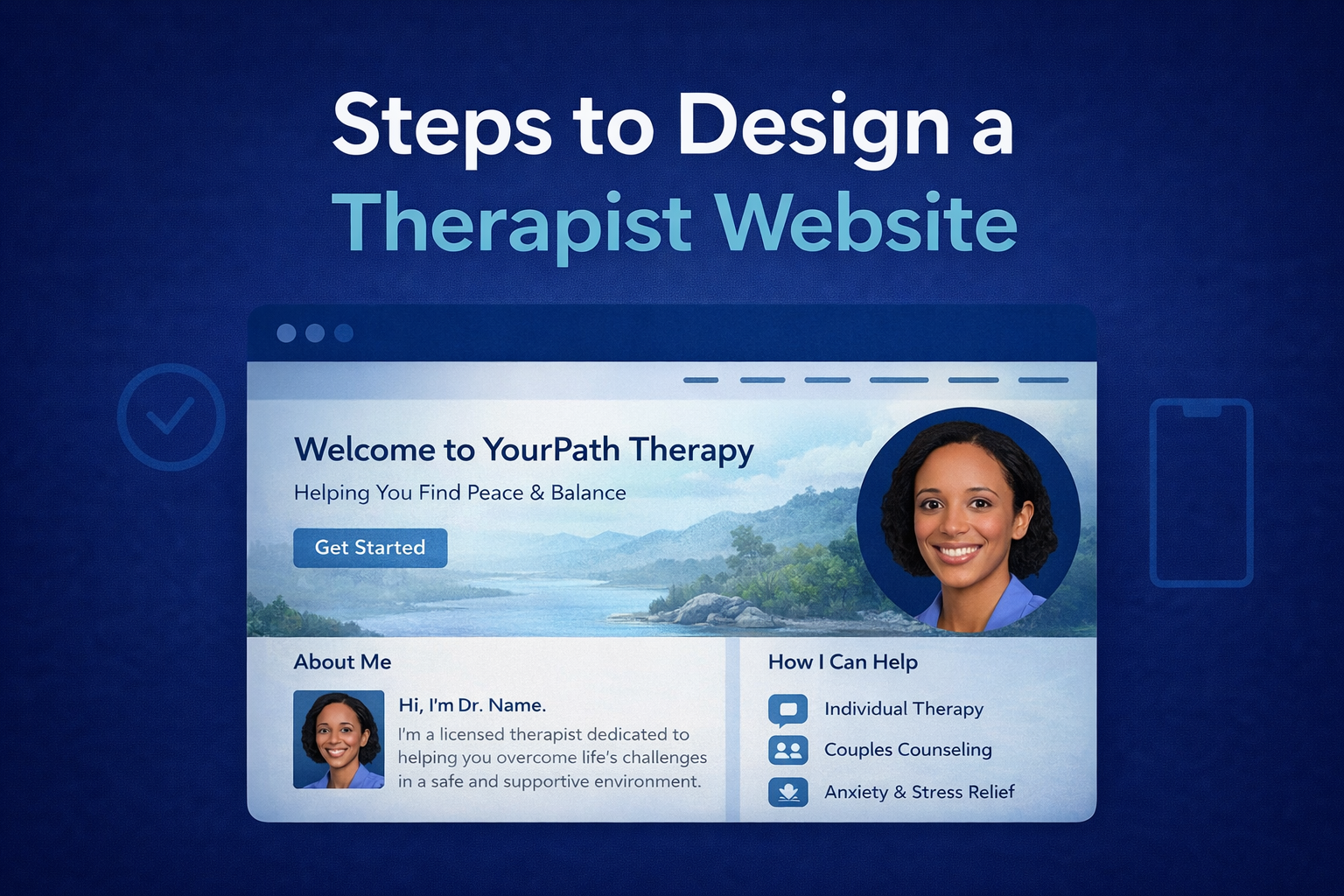Introduction
Searching for the right therapist website developer in 2025 can feel overwhelming. You’ve probably asked yourself:
- “Who really understands mental health websites?”
- “How do I know they’ll build something HIPAA-compliant?”
- “What questions should I ask before hiring a developer?”
If you want a website that attracts ideal clients, ranks on Google, works on mobile, and respects HIPAA — the developer you hire needs more than just design skills.
Here’s exactly what to look for when choosing a website development partner for your therapy practice.
1. Experience Building Mental Health Websites
Many developers can build a pretty site — but that doesn’t mean they understand your niche.
✅ Look for developers who:
- Have built websites for LMFTs, psychologists, or group practices
- Understand the importance of HIPAA, SEO, and voice search
- Know what converts browsers into booked sessions
📌 Trusted Expertise: Mental Health IT Solutions
2. SEO and Voice Search Optimization Built In
If your site doesn’t rank on Google or respond to voice queries like:
- “Where can I find trauma therapy online?”
- “Therapist near me taking new clients”
…it’s not working hard enough.
✅ Ask your developer:
- Will my site be optimized for voice search?
- Do you provide on-page SEO (titles, headers, alt tags)?
- Will my site include a blog and FAQ section?
📌 Learn More: The Role of SEO in Helping LMFTs Get Found Online
3. HIPAA-Compliant Features and Hosting
If your site includes a contact form, intake questionnaire, or chat widget, it must be HIPAA-compliant.
✅ Your developer should provide:
- Secure form tools (like Hushmail or JotForm HIPAA)
- HIPAA-ready hosting (with signed BAA)
- SSL encryption for every page
- Clear disclaimers and privacy policy setup
📌 Security First: Ensuring HIPAA Compliance in Teletherapy
4. Mobile-First, Speed-Optimized Design
Most therapy clients browse on mobile. Google ranks mobile-first websites higher in search, especially for “near me” and location-based voice queries.
✅ Your developer must:
- Design for mobile-first
- Minimize load times
- Compress images
- Use clean, responsive layouts
📌 Performance Tips: High-Converting Teletherapy Website
5. Easy-to-Update CMS (Like WordPress)
You should be able to:
- Add blogs
- Update service descriptions
- Change your contact info
…without needing a developer every time.
✅ Choose developers who build on flexible platforms like WordPress with user-friendly dashboards.
📌 Recommended Platform: Website Development for LMFTs
6. Transparent Timelines and Support
Avoid vague commitments like “we’ll get started soon.” Your developer should:
- Provide a clear timeline
- Include milestone checkpoints
- Offer post-launch support or training
✅ At MHIS, we include project timelines with penalties for delays, and full support for onboarding and edits.
📌 Work With Pros: Custom Website Development for Therapists
7. Portfolio and Results You Can Verify
Ask to see:
- Live examples of therapist websites
- SEO results or ranking improvements
- Google Analytics stats (if possible)
The best developers don’t just show you design — they show you outcomes.
📌 See Strategy: Build Your LMFT Online Presence in 2025
Final Thoughts
A strong therapy website is more than a digital brochure — it’s a lead generation machine, an SEO asset, and a trust-builder.
When hiring a developer, look for:
✅ Mental health experience
✅ SEO + voice search knowledge
✅ HIPAA-compliant tools
✅ Fast mobile-first design
✅ Ongoing support
At Mental Health IT Solutions, we build strategic, conversion-optimized websites that speak directly to your ideal client — and help them find you.







